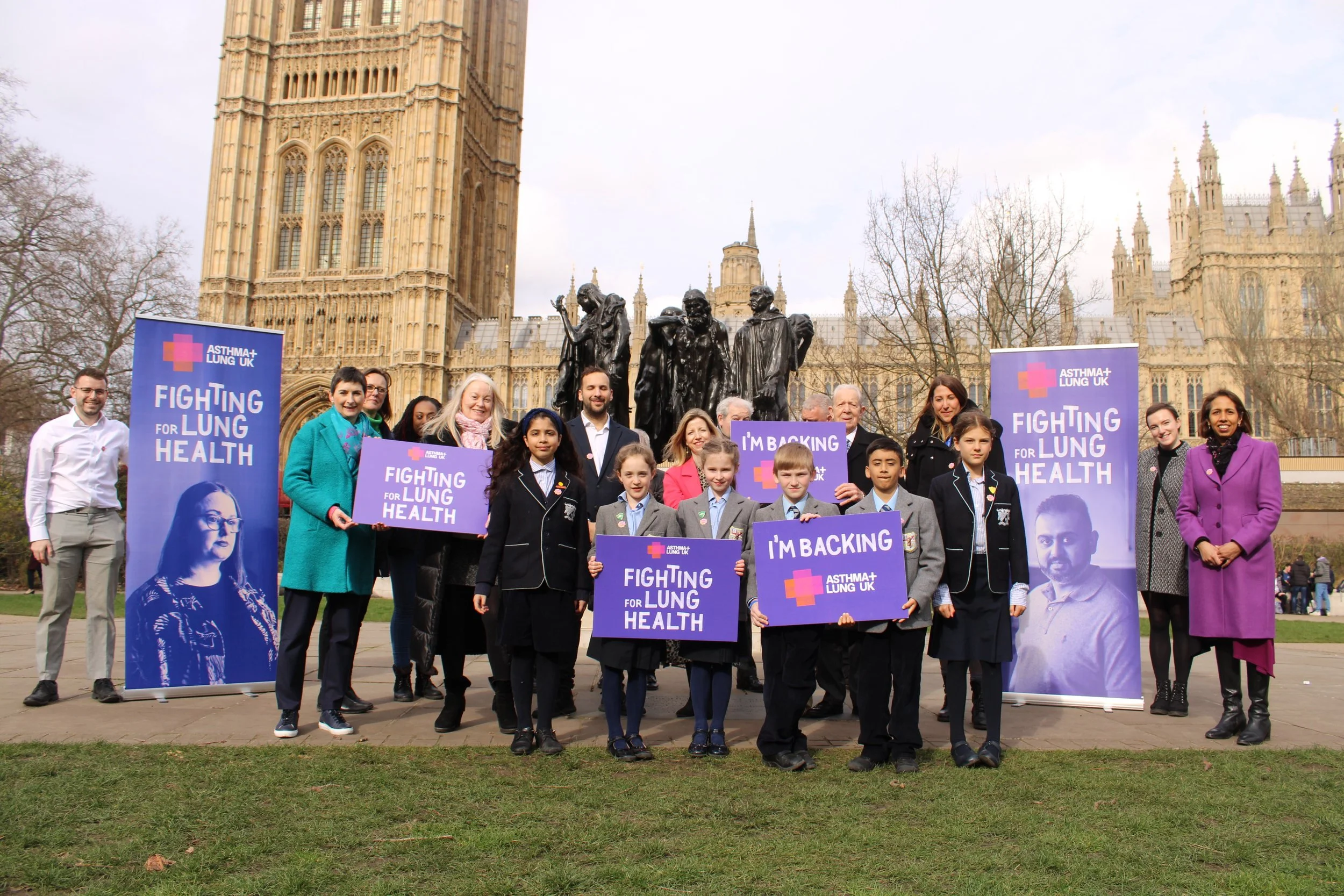Why big tobacco and healthcare should not mix
Jon Foster, Senior Policy Officer with Asthma UK and the British Lung Foundation, explains why we have raised concerns about the potential takeover of British pharmaceutical company Vectura by the tobacco company, Philip Morris International.
The world’s largest tobacco company, Philip Morris International (PMI), is currently bidding to buy the British pharmaceutical company Vectura. This is of concern to many of us involved with lung health as Vectura make inhalers used by people with respiratory conditions such as COPD and asthma, and the company has also been involved in developing a pioneering new inhaler treatment for COVID-19.
Ethical and research concerns
Many of our concerns are ethical. PMI make huge profits from smokers, relying on their addiction to tobacco. It is not acceptable that they would then seek to profit further from treatments for the deadly diseases that tobacco causes.
The tobacco industry is well known for deploying dubious, immoral and at times illegal business strategies in the pursuit of profit. PMI has been accused of running marketing campaigns that target children and was taken to court for complicity with tobacco smuggling to boost its own profits, leading to a $1.25 billion settlement with the EU.
The prospect of a tobacco company moving into healthcare research also causes many further complications and could damage important research networks.
PMI has funded pro-tobacco research in order to discredit independent scientific evidence, and in the UK campaigned extensively against the introduction of the standardised packaging, even launching an unsuccessful legal action against the legislation in 2015.
Political and policymaking concerns
These business practices are unacceptable, but there is great concern that the acquisition of Vectura would allow PMI a greater platform from which to deploy similar tactics within UK policy circles and beyond.
The fact that the tobacco industry works so hard to undermine public health is recognised by governments around the world, and article 5.3 of the World Health Organisation Framework Convention on Tobacco Control explicitly aims to reduce industry influence in public health policymaking.
This means that the Government and any other public bodies are not allowed to engage with the tobacco industry over health-related policy. If Vectura is purchased by PMI, the government and many others would therefore need to very carefully limit their interactions with the company. This could seriously hamper Vectura’s research and product development.
In the same way as Governments, many universities, medical journals and medical groups exclude the tobacco industry because it is known to fund misleading pro-tobacco research. If Vectura becomes part of PMI it will not be able to publish research in leading journals such as the BMJ and the Lancet, and key respiratory associations such as the British Thoracic Society, the European Respiratory Society, the American Thoracic Society and the COPD Foundation have all denounced the takeover and made it clear that it would prevent Vectura from engaging with them. Vectura also has important university research links, all of which seem likely to be ended by this takeover.
The British Thoracic Society statement makes this extremely clear:
BTS membership is not open to those who have, or have had, paid involvement with tobacco industry at any point in the previous 10 years. Any company with links to the tobacco industry will not be approved for participation (for example as exhibitors) in any Society Conference or meeting. Furthermore, publication of papers funded (wholly or in part) by the tobacco industry in the Society’s journals, Thorax and BMJ Open Respiratory Research, is specifically prohibited.
This must be stopped, or vital research may not continue
The fact that Vectura would be frozen out of key research networks and publications is of great concern to us at Asthma UK and the British Lung Foundation as this research is so greatly needed. It should also be of concern to Vectura shareholders – how will the company continue to develop vital new treatments if key research partners will not work with it?
Asthma UK and the British Lung Foundation have always been extremely wary of the tobacco industry and the tactics they employ. In partnership with ASH and Cancer Research UK, we have written to the Health Secretary and the Business Secretary expressing our concern about this takeover and encouraging the government to intervene. We are also working with Tobacco Free Portfolios to explain these significant problems to Vectura shareholders, who will be voting on whether to go ahead with this takeover on 24th August. A number of key shareholders, such as AXA, Ostrum and Société Générale have signed the Tobacco Free Financing Pledge, committing not to invest in tobacco companies.
We hope to demonstrate to all investors that this deal is a bad idea, not least because of the way in which becoming part of PMI will significantly hamper Vectura as a medical research company. Indeed, the Financial Times has highlighted the danger ‘that tobacco ownership impedes Vectura’s ability to attract talent, win business and develop products’.*
The government have said they are watching the situation closely and considering if there is anything they can do to stop the takeover. There may be other bidders to invest in Vectura, and we strongly hope that the shareholders will reject PMI’s offer. It is clear that the tobacco industry has no place in respiratory healthcare, and this deal should be condemned by anyone who cares about the world’s lung health.
*This article is supplied by Financial Times, for access, a subscription is required.
We empower people with lung conditions to make changes that can be transformative.
Please donate now to help make sure people with lung conditions can live well this year.








Beki is a PhD student from the West Midlands. She has several health conditions including severe asthma and Ehlers-Danlos syndrome (EDS). EDS is a rare inherited condition that affects connective tissue. Last May, Beki set herself a fundraising challenge to complete 180,000 steps to raise money to mark World Asthma Day and EDS Awareness Month.